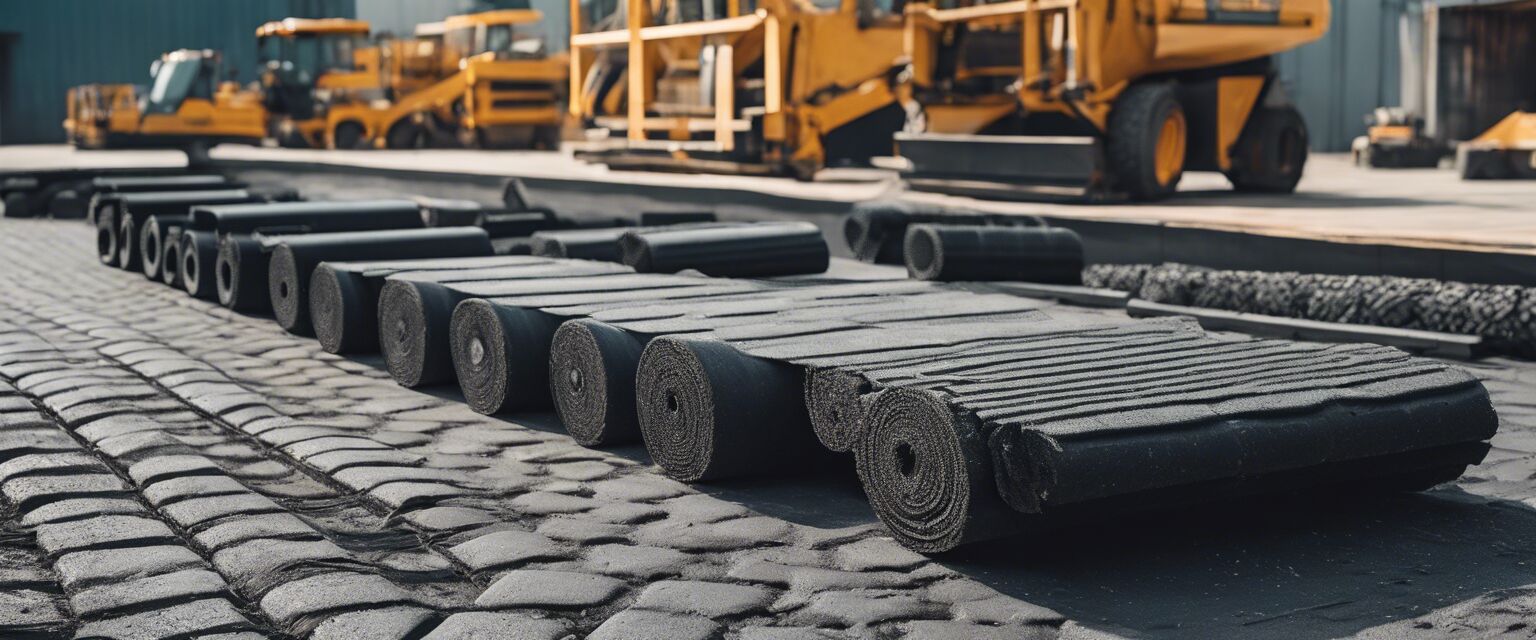
Asphalt mixes and additives
Key takeaways
- Asphalt mixes are crucial for durability and performance.
- Additives can enhance various properties of asphalt.
- Different types of mixes cater to specific paving needs.
- Choosing the right mix and additive can improve longevity and appearance.
- It's essential to evaluate mixes based on your project requirements.
The right mix and additives can make all the difference when it comes to asphalt paving. In this article, we review various asphalt mixes and additives that can enhance the performance, appearance, and lifespan of your asphalt pavements. Whether you're a contractor or a DIY enthusiast, understanding these materials is crucial for successful paving projects.
What is an asphalt mix?
An asphalt mix is composed of aggregates, asphalt cement, and additives. The aggregates give the mix strength and stability, while the asphalt cement acts as a binder to hold it all together. The right combination of these materials is vital for achieving a durable and smooth finish.
Types of asphalt mixes
Different asphalt mixes serve unique purposes. Hereâs a breakdown of the most common types:
| Type of Mix | Description | Best Use |
|---|---|---|
| Hot mix asphalt (HMA) | Hot mix asphalt is produced at high temperatures and is ideal for high-traffic areas. | Roads, highways, airports |
| Warm mix asphalt (WMA) | WMA is produced at lower temperatures, reducing energy use and emissions. | Environmental projects, urban areas |
| Cold mix asphalt | Cold mix is used for patching and repairs and is easy to work with. | Pothole repairs, maintenance work |
| Porous asphalt | This type allows water to drain through, reducing runoff. | Parks, recreational areas |
Importance of additives in asphalt
Additives can significantly enhance the performance and longevity of asphalt mixes. Here are some common additives:
- Polymer modifiers: Improve flexibility and durability.
- Rubberized asphalt: Provides better resistance to cracking.
- Warming agents: Help reduce mixing temperature.
- Anti-stripping agents: Prevent moisture damage.
- Color additives: Enhance the aesthetic appeal.
Evaluating asphalt mixes and additives
When selecting asphalt mixes and additives, consider the following factors:
- Project requirements: What is the primary use?
- Traffic levels: Determine expected loads.
- Environmental considerations: Think about sustainability.
- Cost: Analyze your budget.
- Performance data: Check records and case studies.
Comparing asphalt mixes and additives
Hereâs a comparison to help guide your decision:
| Mix/Additive | Performance | Environmental Impact | Cost |
|---|---|---|---|
| Hot mix asphalt | High durability | Higher emissions during production | Moderately high |
| Warm mix asphalt | Good durability | Lower emissions | Similar to HMA |
| Cold mix asphalt | Less durable | Lower impact | Lower cost |
| Porous asphalt | Moderate durability | Good for managing runoff | Higher installation cost |
Frequently asked questions (FAQs)
What is the best asphalt mix for high traffic?
Hot mix asphalt (HMA) is typically the best choice for high traffic areas due to its durability and strength.
Can I use cold mix asphalt for driveways?
Yes, cold mix is suitable for driveway repairs as it's easy to use and effective for small jobs.
What additives improve asphalt performance?
The use of polymer modifiers and anti-stripping agents can enhance the flexibility and moisture resistance of asphalt.
How do I determine the right asphalt mix for my project?
Evaluate your project requirements, expected traffic, and budget to choose the most suitable asphalt mix.
How can I maintain my asphalt surfaces?
Regular maintenance, including sealing and crack filling, can extend the life of your asphalt surfaces.
Tips for beginners
- Start with warm mix asphalt for smaller projects to minimize environmental impact.
- Always consider the weather conditions before paving.
- Invest in quality tools and equipment for better results.
- Consult local paving experts for recommendations specific to your area.
- Keep records of your paving process to analyze and improve in future projects.
Pros
- Diverse options to suit various project needs.
- Additives enhance performance and longevity.
- Improved appearance with color additives.
- Reducing environmental impact with the right mixes.
- Enhanced safety through better drainage with porous asphalt.
Cons
- Higher costs for advanced mixes and additives.
- Cold mix may not last as long as hot mixes.
- Requires proper knowledge to select the right materials.
- Environmental regulations may impact availability.
Conclusion
Choosing the right asphalt mixes and additives is pivotal for successful paving projects. As discussed, various mixes cater to different needs, and additives may enhance durability and performance. Whether you are an experienced contractor or a DIY home inhabitant, understanding these products will lead to better, longer-lasting results. Explore our additional resources on asphalt mixes and additives, asphalt pavers and rollers, and paving tools to gain more insights into your projects.










